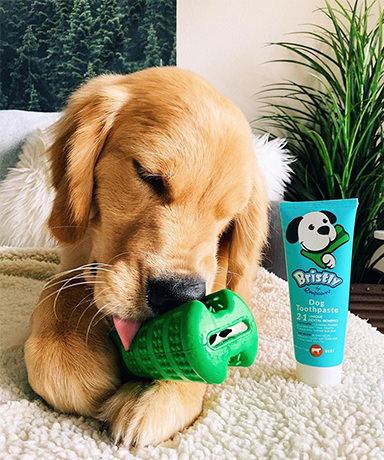Your Cart is Empty

Time to make your inbox pawsome
Sign up today and get 10% OFF your first purchase!


Let's face it: dogs get older. One day you're playing fetch with your puppy for hours on end, and the next, you're taking it easy on them because you know her hip is bad. Old dogs can be by your side for years and years and they experience life with you, or they can be found at a shelter, still full of love and life and begging for a chance to sleep at the foot of your bed.
Whether you've had your dog since he was a puppy or you brought him home in old age from the shelter, old dogs need a lot of love. You might look down one day and see that their muzzle is a little whiter than you remember it and their eyes have a hint more milkiness than you think should be there, and you may wonder what you can do for your furry best friend as they get up there in years. We want to honor our dogs who have lived long and happy lives in their "golden years." Here are a few ways you can help your old pal out:
When dogs get older, their metabolism shifts, which makes them more susceptible to overheating in the hotter months and freezing during the colder months. As it gets warmer, if you have an older dog, it's probably not the best idea to leave him outside in the hot sun for too long. Be out there with him, have a bowl of water accessible, make sure there is a shady spot for him to lay down, and take him inside to the air conditioning if it looks like he's getting too hot.
Because of their metabolism slowing down, older dogs have more trouble thermoregulating so you have to be sure to monitor them when it comes to extreme temperatures. In the colder months, if you're out walking, have a coat or covering they can wear. If it's below freezing, make sure they're not outside for more than 10-15 minutes.
Because of their metabolism slowing, older dogs have a tendency to gain weight, and it's not because we just like to spoil them by sneaking them more french fries. A slower metabolism makes an older dog more likely to gain weight because he's not burning as many calories in his resting state. In addition, being older may mean he may not have as much energy as he did when he was younger, so he's less prone to run off all those extra calories.
Be careful if you do see your pup packing on the pounds because the extra weight on their frame can mean trouble for their joints. The easiest way to fix this is to be honest regarding his diet and exercise routine. If you've been sneaking him a few too many treats, try a lower calorie alternative like carrots, and go on a daily (low-impact) walk. Small changes like this can result in not having to put your pup on joint medication. But it's always a good idea to consult your vet.
If you see your dog has a tinge of grey in their eyes, it can be one of two things. The first is called lenticular sclerosis and it is the most common reason your dog's eyes would be turning grey our cloudy. Lenticular sclerosis is a normal color change that happens in the lens of a dog's eye. This can actually start as young as 5 years old.
Although the lens of their eye is a different color, the dog can still see through it and function normally, although the images he sees may not be as sharp as they once were. The other reason for grey eyes in dogs is cataracts. A much less common disease, cataracts happen most often in dogs who have diabetes. Unfortunately, there's not a lot that can be done for dogs with cataracts. They eventually go blind, but they can adapt easily to their environment without sight as they rely more on their hearing.
Final Thoughts
Overall, it's best to be patient with your old dog, especially if you have just adopted her from a shelter. They may not have the same energy and spring in their step as a puppy, but they make up for it with cuddles, loyalty and love.
